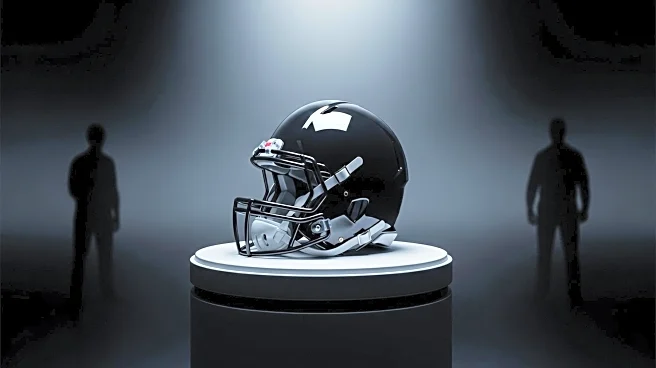What is the story about?
What's Happening?
Bryce Underwood, an 18-year-old freshman quarterback, has made a significant impact in his first four college football games. He has demonstrated remarkable poise and versatility, surprising many with his performance. Underwood began his college career with a 251-yard passing debut against New Mexico and continued to showcase his skills with 235 yards through the air and impressive running plays against Central Michigan. Despite Nebraska's efforts to limit his impact, Underwood's ability to handle adversity has been noted by his coaches. Tight ends coach Steve Casula highlighted Underwood's running ability, which adds complexity to defensive strategies, likening it to having an extra player on the field. Casula praised Underwood's maturity and adaptability, noting that he has not shown typical freshman vulnerabilities.
Why It's Important?
Underwood's early success is significant for college football as it highlights the potential for young athletes to make an immediate impact at the collegiate level. His ability to adapt to different defensive challenges and perform under pressure suggests he could be a key player for his team. This development is important for college football programs looking to recruit and develop young talent. Underwood's performances could influence recruitment strategies and inspire other young athletes. Additionally, his success may impact team dynamics and strategies, as coaches might adjust their playbooks to leverage his unique skills.
What's Next?
Underwood is set to face Wisconsin, known for its strong rushing defense, in the upcoming game. This matchup will be a test of his growth as both a passer and runner. Coaches and analysts will be watching closely to see how Underwood adapts to this challenge. His performance could further solidify his reputation as a rising star in college football. The outcome of this game may also influence his team's standing and strategy for the remainder of the season.
Beyond the Headlines
Underwood's rise in college football could have broader implications for the sport, including discussions about the role of young athletes in high-pressure environments. His success may prompt conversations about the support systems and coaching strategies necessary to nurture young talent. Additionally, his performances could influence media coverage and fan engagement, as audiences become more interested in following his career.















